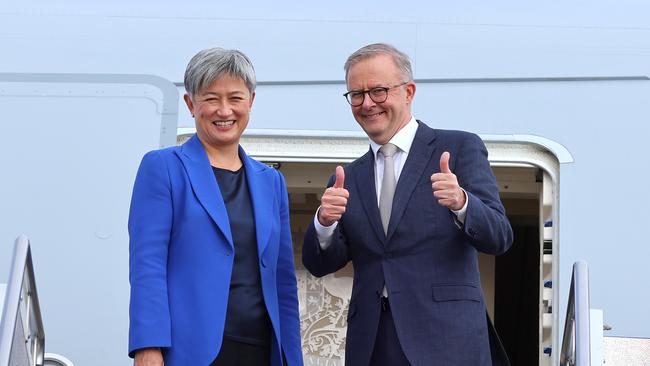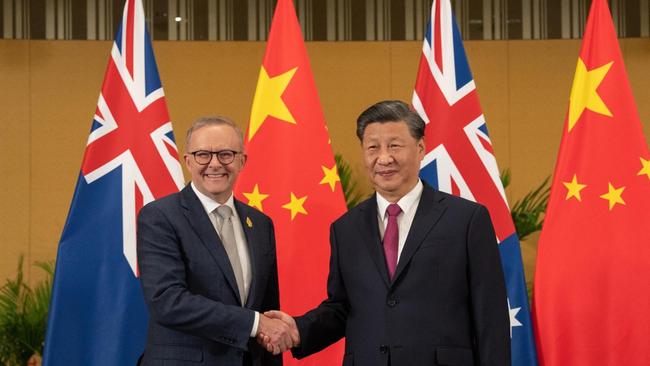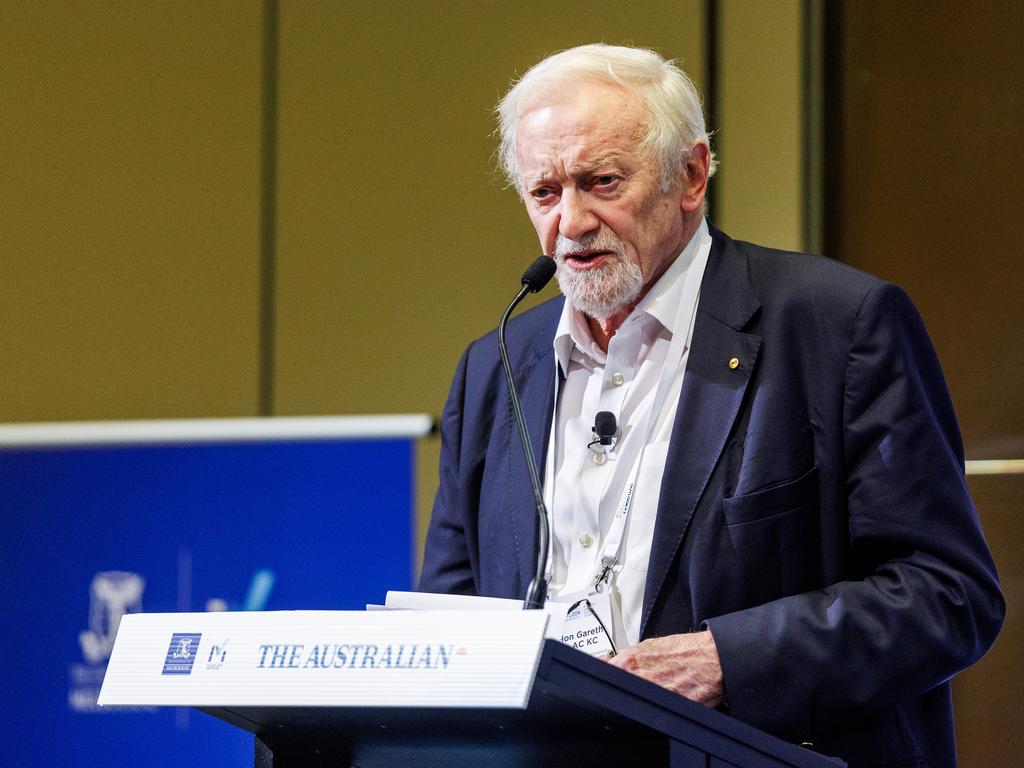
Australia comes to the visit from a position of strength.
Australia is fully subscribed to the US alliance and America’s global leadership role, and has built an array of partnerships with like-minded countries to guard against Chinese threats.
Beijing’s trade bans on Australian exports had virtually zero impact on Australia’s economy, and were an exercise in self-harm in what they revealed about its behaviour.
Its shrill diplomacy, cyber theft, bribery of regional elites, and massive military modernisation have likewise helped awaken Australia and the world to the nature of China under Xi Jinping.
Beijing will carefully stage manage the Prime Minister’s visit to convey the impression that Australia has crawled back after a period of misbehaviour.
Albanese will face, in the grandeur of the occasion, an overt display of China‘s raw power.
Xi Jinping will be cast as emperor and global statesman.
Many past visitors have been overwhelmed in the moment; others hoodwinked by deceptive statecraft.
Joe Biden’s treasury secretary Janet Yellen conveyed an impression of US weakness in July when she bowed upon meeting Vice Premier He Lifeng.
When Antony Blinken visited a month earlier, Beijing made a last-minute change of seating arrangements to make the US secretary of state appear as a subordinate reporting to the Communist Party chairman.
Albanese will make no intentional concessions to China, though the risk of diplomatic error can’t be discounted.
The Prime Minister must also dispel any notion he might have to play an intermediary role between China and the US.
Doing so would hand China a strategic advantage and risk undermining Australia’s alliance with the US.

For Australia there is no going back to the days of easy engagement with China.
There will be no reprieve for Huawei, and China’s “14 grievances” with Australia will endure.
China’s push for Australia to back its bid to enter the trans-Pacific free trade bloc will likewise be rejected, and the chances of Australia allowing new Chinese investment in sensitive sectors like critical minerals are slim to none.
Australia’s closest partners, particularly the US, Japan, India and South Korea, will be watching for even the slightest policy shift by Albanese during the visit.
While a nation of just 26 million, Australia is regarded by many of its international friends as a “super middle power”. Canberra’s diplomacy matters, especially in relation to China.
Albanese’s “co-operate where we can, disagree where we must” formula for dealing with Beijing has served him well so far.
In fact, the disagreement part of the equation is the easier one to adhere to.
Albanese is, as he told senior US officials, “clear-eyed” on the dangers of re-engaging with Beijing, and has the West’s near universal consensus on China to fall back on.
It’s the potential for collaboration that is likely to pose the most serious immediate danger.
China will be looking for areas of common interest to do deals on, even if they’re the sort of flimsy MOUs that Beijing loves to churn out.
Co-operation on green energy is one potential area where Albanese might be prepared to give ground.
But anything involving Chinese technology is a risky proposition, as Australia’s intelligence agencies will attest.
Any cooperative activity in the Pacific, such as a joint health initiative, would also be problematic, allowing Beijing to make further inroads in the region.
On the upside, China’s punishing treatment of Australian exports is likely to come to an end sooner rather than later.
Australia’s bilateral trade with China was worth nearly $300 billion in 2022, accounting for 25 per cent of overall trade. There’s potential to grow those numbers.
But China has proven itself to be an unreliable trading partner, so diversification remains the smartest choice.
Albanese is playing the “great game” with one of its most skilled practitioners. There’s much to gain, but also a lot to lose.








Anthony Albanese’s coming China trip is bristling with risk, but he has calculated it is worth the potential reward.